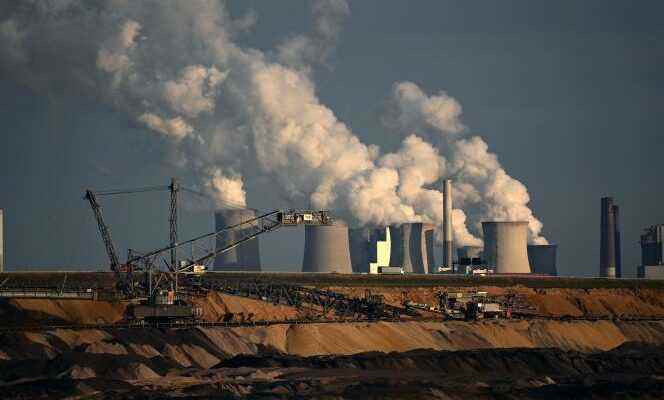Is Germany on the eve of a new energy revolution? All certainties are in any case in the process of tipping over since Russia reduced its gas deliveries by 40%. The country is highly dependent on it for its consumption and production.
It is a disaster for the economy, which could take on its full magnitude from the fall. The specter of a disruption in energy supplies is real: gas reservoirs are currently only 58% full, according to the latest report from the German network agency. This is insufficient to cover the needs this winter, especially in industry, while households have priority. In recent days, the risk of a serious recession has been openly mentioned.
The situation is so tense that the Minister for the Economy and the Climate, the ecologist Robert Habeck announced, on Sunday June 19, a first rationing plan. This provides in particular that to save gas and fill the reservoirs, the electricity production from gas-fired power stations (10% of the electricity mix) will be reduced, the lack being replaced by… a more intensive use of coal-fired power stations. For the Greens, the decision to make greater use of black ore, which is highly polluting and emits greenhouse gases, was “painful”conceded Robert Habeck Tuesday, June 21, during a speech to the Federation of German Industry.
A few hours earlier, in front of the same audience, it was the finance minister, the liberal Christian Lindner, who had lifted another taboo: that of the extension of the three nuclear power plants still in operation in Germany, which must in principle be extinguished. at the end of the year. In his speech, he called for a debate “open and non-ideological” on the issue, given the energy crisis. It is not a question, he said, of overcoming just one winter, but of ensuring the country’s energy security. “the next three to five years”, during which gas will be scarcer than before and electricity prices high. The head of the Christian Democratic Union (CDU), Friedrich Merz, who has never forgiven Angela Merkel for the early exit from the atom, also defends this idea.
The war in Ukraine has reshuffled the cards
Whether or not to extend nuclear power is undoubtedly the most divisive political question for the ruling coalition, made up of the Social Democrats (SPD), the Greens and the Liberals of the FDP. The latter, close to business circles, are traditionally rather in favor of the atom. The rejection of nuclear power is, on the contrary, one of the founding convictions of the ecologist party. The energy consensus that has prevailed in Germany over the past ten years was that Russian gas, cheap, less polluting than coal and whose supply was considered very secure, was the ideal transition energy to accompany the exit from nuclear power. and coal and the growth of renewables. The Russian aggression against kyiv has shattered the validity of this approach and reshuffled the cards of the debate.
You have 45.52% of this article left to read. The following is for subscribers only.
